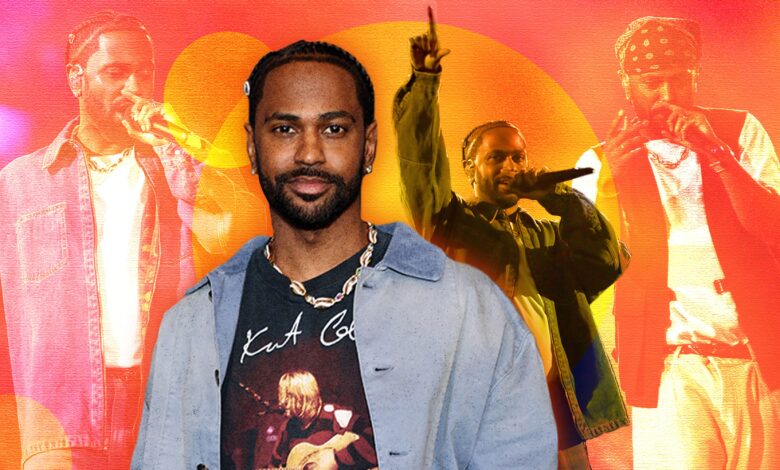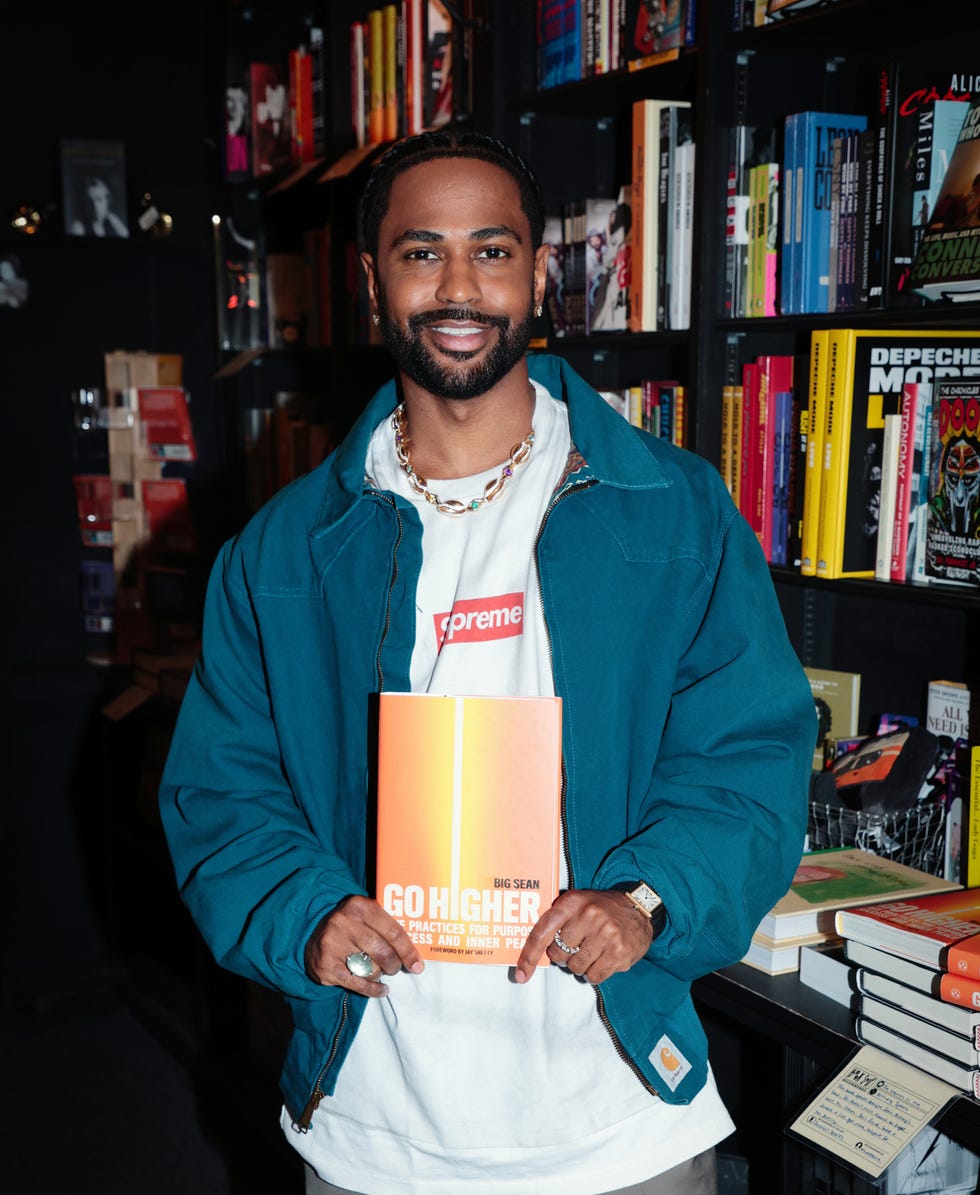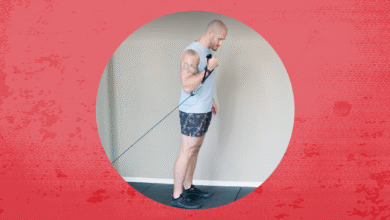Big Sean’s Journey of Self-Discovery Helped Him Conquer Addiction

SOME SELF-HELP books read like a laundry list of all the things you’re doing wrong in life. Others can help inspired readers through experiences shared by the author. That’s what veteran rapper Big Sean aimed to do in his new book Go Higher: Five Practices For Purpose, Success, and Inner Peace.
“When you share what you’ve been through, it can paint the picture more,” Sean said. “When you have something that you’re trying to implement in your mind, I feel like the quickest way to do that is to go to your heart first.”
In the book, Sean outlines how he landed in therapy in the middle of his successful rap career, after realizing he was using Adderall to numb his pain. That transitional time also led him to develop a distinct wellness routine to assist with his path to healing. We spoke to the Detroit-bred emcee about how he transformed his life to heal himself, and how he channeled that recovery into written word—both in his music, and in his book.
MEN’S HEALTH: You outline your first experience with what resembled a depressive episode in your book. When did you realize this experience was something deeper than a normal slump?
BIG SEAN: I was waiting for a reply from Ye about signing me [to his record label], and I didn’t know what was going on inside—I just knew I didn’t feel good. You always have 20/20 vision in hindsight of what something was, and what you could have done. I was still a teenager, and that was one of my first gut punches. I put all my eggs in one basket so I had to tell myself, “I’m gonna make it work, even if it’s not how I thought.”
Luckily, I had supportive parents and grandparents. My grandma was a female Black captain in World War II. She was a spiritual, religious manifester who always created something out of nothing. My mom is the byproduct, and evolution, of her. They kept saying, “you can manifest this [music career path].”
When I first went through that, I guess you could call it depression or disappointment, I had to realize that just because things aren’t going my way doesn’t mean I can’t choose to be happy. When I started changing how I felt, everything else started changing. My goal was to write this book for people who are in a situation similar to that.

MH: What was the impetus that led you to reach out for help from a therapist?
BS: I think everyone goes through a point of development where they hit a wall, and it’s painful. Something happens around that 29 to 34 range where life changes dramatically. I don’t know if it’s just entering your 30s. You realize that you have to reconnect with yourself differently. You’re not the same person you were in your 20s, and that can be kind of a letdown. It can be scary to reconnect with yourself, because you may not know who you are, and you may look at yourself and say, “I don’t even like you.”
For most people, I think it’s hard to do alone. We don’t live on an island. You’re a part of a community of people on this planet, and you can take advantage of what others have been through and experienced. Some people may be able to offer you some advice, and even if you take it with a grain of salt, sometimes a grain of salt is all the recipe needs. [Working with a therapist] has worked out tremendously for me. I advise everyone to at least try it, if you are able. Not every therapist is the right one for you. Sometimes it’s like finding the right barber—you can’t just expect it to be the perfect haircut off-rip. But you can get something tremendous out of it, [and] it’s different than talking to a family member or a friend. With a therapist, you really can dump it all out and leave it there.
I inspired my dad to go to therapy. He’s 75 years old and from Monroe, Louisiana, so he grew up during the Civil Rights times. He would get his ass beat sometimes just for being on the wrong side of the tracks. He had a stuttering problem, and he realized through therapy that it may have been because of the trauma he had endured. My point is that even if you think you don’t need it, I don’t see how it could hurt.
MH: Something that’s very distinct about your story, and that you’re very upfront about in the book, is your battle with addiction to Adderall. What did your addiction recovery teach you about yourself?
BS: It taught me that everyone is different. [The addiction] was ripping me apart from the inside out. I know people who have to be on it because they are prescribed it—but I had to share my story because I wasn’t prescribed it. I’m thankful I was smart enough to realize I had to stop. When you’re addicted to something, logic doesn’t always play a role. I walked into my studio one day, discovered I didn’t have any [drugs left], and was so mad and felt like I just couldn’t do anything. I was like, “Oh, hell no, I’ve got a problem.”
[After I quit,] it took years for me to be able to have any type of inspiration and happiness. I had to really work on myself. That’s when I realized how important it is to be physically, mentally, spiritually, and emotionally healthy because everything is attached. I started working out which helped me think clearly, which changed my attitude, which helped my brain function better, which helped me gain confidence back.
Multi-platinum artist, entrepreneur, and philanthropist, Big Sean shares his five key practices for inner work and self-acceptance in this interactive guidebook on maintaining daily mental wellness.
Writing things down in a journal also got things out of my head and into the world. I believe in a higher power and that God is here to serve us and give us what we need. Sometimes what we want is what we need, and sometimes what we need isn’t what we want. Either way, I at least have to let it be known what my intentions are. I feel like you have to communicate with God or whatever it is you believe in. That [was the emphasis of my] journaling. Meditation, in conjunction with journaling, helped me have a sense of clarity. When I don’t meditate, I just feel backed up. It raises frequency to the highest it can be to attack the day the best way I can.
When it comes to [these] rituals, I try to do them every single day. There are days when I have to do them at different times, especially if my son wakes up before me. There are times when I have to find a groove in the middle of the day to do my meditations and really center myself. But it’s very important to me to do these things on a daily basis.
MH: Your song “Black Void,” from your most recent album Better Me Than You, talks about navigating your depression. In another album of yours, Detroit 2, “ZTFO” (zen the f*ck out), is about meditating on your couch. How do those two songs outline the breadth of your mental health journey?
BS: On “Black Void,” I was trying to channel that feeling of growth. Before you have a rebirth into the world, you have to return to the black void and rediscover yourself. “Zen the f*ck out” is a feel-good, freeing slap. It’s just about connecting and having fun. Working on yourself, rediscovering yourself, and connecting with yourself is supposed to be fun. None of it has to be hard or feel like school. Doing the work to save you is never a waste of time. You’re actually making time for yourself when you take the time out to read or journal or meditate. Return to you, so you can zen the f*ck out.




